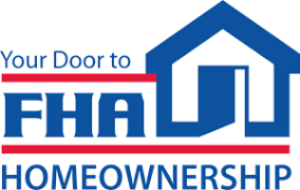The FHA opened for business in 1934 as the result of a law passed by Congress and signed by the President. The goal was to provide loan insurance for Americans who were having trouble getting through the qualification process for mortgages in the midst of the depression. The FHA has become an institution and is still an excellent resource for people with less than stellar credit who wish to buy a modestly priced home.
FHA provides insurance for loans issued by lenders who partner with them. Their guidelines for qualification were unique at one time; with the development in recent years of new mortgage products in the commercial sector they have seen some competition develop.
In today’s market, an FHA loan is often a good choice for a subprime borrower. The FHA will insure a loan for an applicant that has been through bankruptcy, as recently as two years prior to the loan application. They require a down payment of three percent. A down payment that small was once a remarkable opportunity; however today there are mortgages available that finance 100% of the home along with the closing costs.
 FHA loan guidelines don’t apply the same weight to credit scores as a commercial lender would on its own. Poor credit ratings will not have an adverse affect on the loan interest rate, as long as they meet a certain minimum. FHA loans generally are within .125% of standard loan interest rates, so FICO scores don’t dictate the cost of the loan. In analyzing a loan applicant’s debt load, the FHA will allow up to 41% of home income to be applied to debt service – a figure that is more generous than the standard applied by most lending institutions for prime borrowers.
FHA loan guidelines don’t apply the same weight to credit scores as a commercial lender would on its own. Poor credit ratings will not have an adverse affect on the loan interest rate, as long as they meet a certain minimum. FHA loans generally are within .125% of standard loan interest rates, so FICO scores don’t dictate the cost of the loan. In analyzing a loan applicant’s debt load, the FHA will allow up to 41% of home income to be applied to debt service – a figure that is more generous than the standard applied by most lending institutions for prime borrowers.
The down side to an FHA insured loan is that there are ceilings to the size of the mortgage the FHA will support. Those figures range from $200,000 in areas where homes aren’t so costly to $362,000 in the areas with highly inflated housing markets. In many markets, neither figure is adequate for homes that average families are looking for and can afford. Option ARMs and interest only ARMs are also not in the FHA portfolio; if you apply for an FHA mortgage expect to be paying on a loan with little or no adjustment.
FHA loans are bargains for people in the middle of the credit score range who do not have a lot of resources. Often there are state or local housing programs that will assist in providing the required 3% down payment. The cost of mortgage insurance that is caused by the low down payment is incorporated into the loan but is far lower than commercial loan insurance. Some FHA loans will incorporate construction costs into the mortgage, if the applicant is buying a fixer-upper and needs cash to bring the home up to standard. The FHA has been bypassed by some of the “lenient” mortgage packages now on the market, but their loans remain by far the best bargain for people who can work with sums under their loan ceilings.